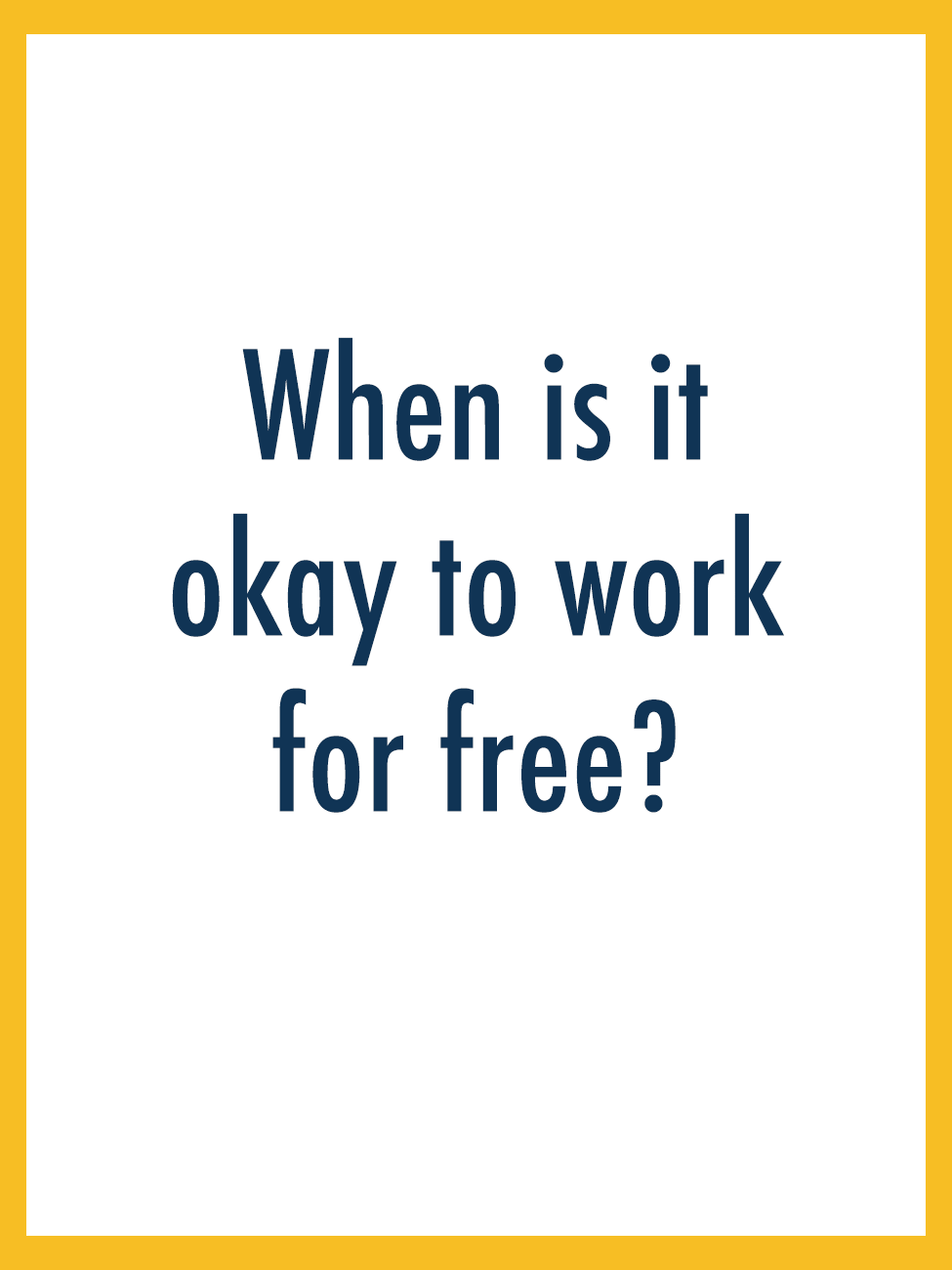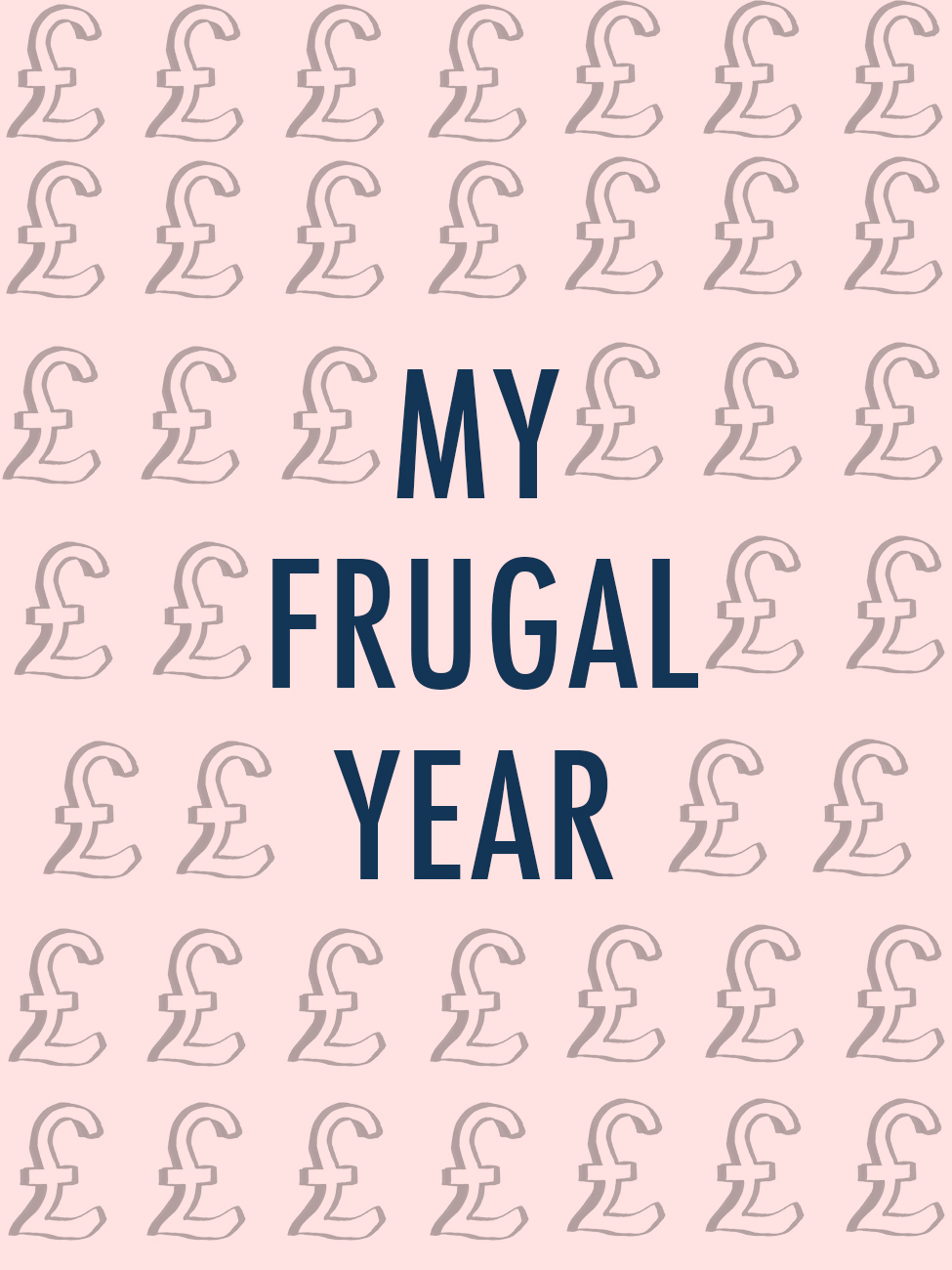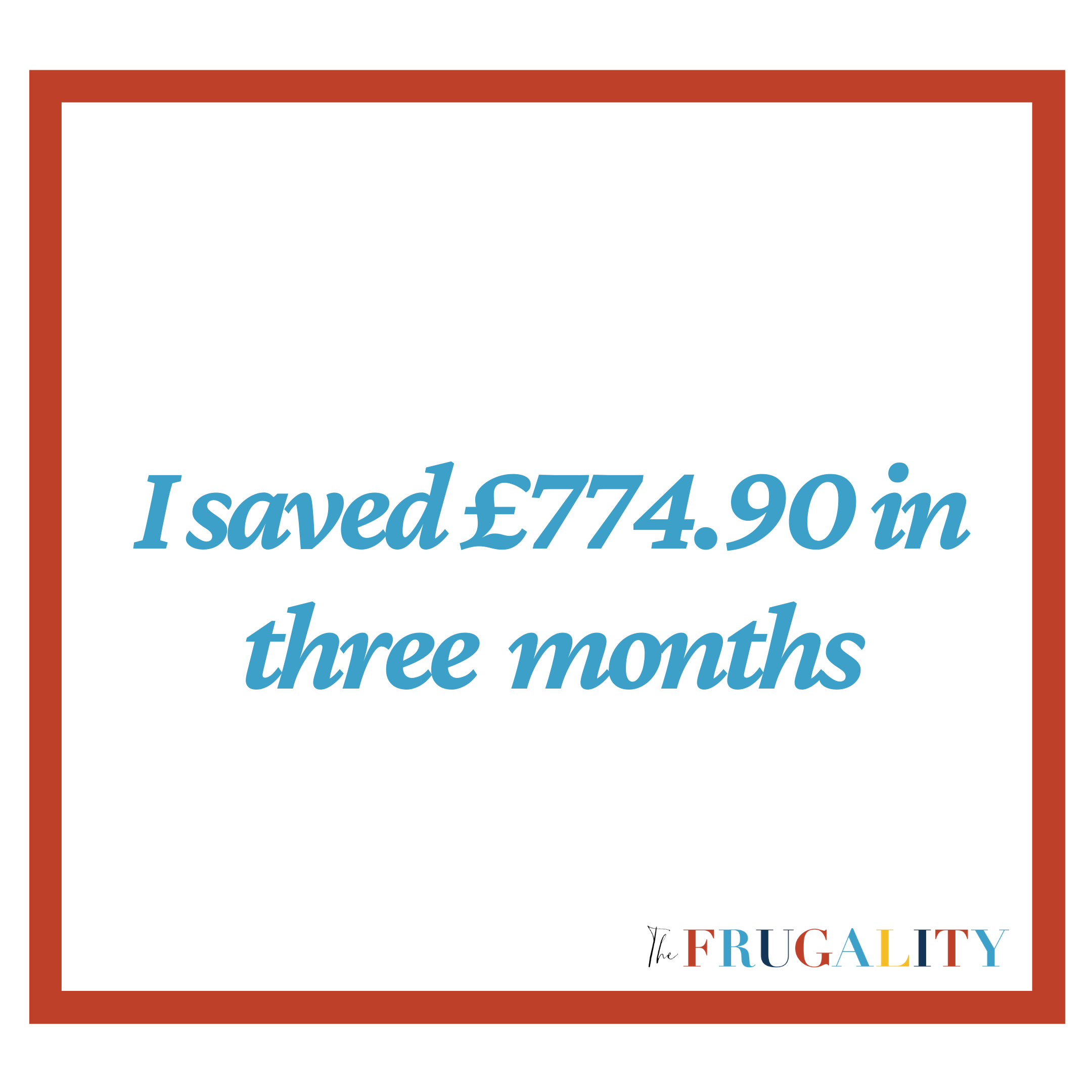Alex Holder on the problem with working for free and how it’s those fighting for a cause that are often hit the worst.

Consider, for a moment, the activist. Let’s imagine a young woman who spotted an area in our dysfunctional society that she could help change; period poverty or online abuse or the maternal care of black women or equality in the workplace. Let’s say she creates a purpose-driven organisation whose sole aim is to help others and her salary is capped at the level a not-for-profit can pay. And then, as she becomes good at what she does – making sure local food-banks have a sufficient supply of sanitary products, say – companies and organisations get in touch to say ‘We love what you do, can you come and talk about your activism at our away day?’ and the woman, wanting to talk about the issue she cares about, says yes, because also, saying no is emotional labour, so she travels across London and sits on a panel and talks about her work, and she looks around the room and sees that there aren’t many women in the room, and, actually, she is the only woman on the panel and she realises that perhaps, perhaps, her presence made this organisation, this definitely for-profit organisation, look better. She laboured so someone else could tick a box, and yes, 60 more people now know about her activism, but, she wonders, was that worth not doing the work that she knows makes a difference, or even, dare she say it, working for some extra cash of her own, and now, not only is she out of pocket (her train ticket costing £16, her uber another £7), but she’s, well, I imagine she’s quite knackered.
With big businesses engaging with purpose-driven causes, working for free has never been such a contentious subject
With big businesses engaging with purpose-driven causes, working for free has never been such a contentious subject. There’s always been the issue of unpaid internships, but increasingly companies and organisations are asking people to give their time for causes with no payment being offered. Asking a woman to deliver a talk about the importance of equal pay and not paying her sounds like a satirical sketch, but it’s happening.
‘I’d had another email asking me to talk at an event, for free, with no travel costs,’ says Seyi Akiwowo on how her and her friend Gabby Eldin came to set up the facebook group FU Pay M£ so women and non-binary people could chat rates, give each other money advice and empower each other to say ‘I don’t work for free’. As Edlin says – ‘We’re sick and tired of being asked to work for free. To do panels for free, run a workshop ‘on love’, or create art for companies with only the offer of ‘exposure’. It’s been incredibly empowering to hear how others are saying ‘no’ or ‘the fee needs to be higher.’
Seyi and Gabby met at an International Women’s Day (IWD) event they were participating in for free. ‘I joked to Gabby’, Seyi tells me, ‘How much work are we going to have to do for IWD before we get paid?’ Seyi is a TEDx speaker and the founder of Glitch, a not-for-profit organization that exists to end online abuse. As a young black woman working in the technology industry, where only 17% of roles are filled by women and less than 1-2% of roles are filled by black women, Seyi tells me ‘when someone asks me to be on a panel, I don’t have the privilege to think it’s not about my race or my gender.’ And because Glitch’s mission is purpose-led, people presume it’s not about money, ‘Being an activist isn’t about martyrdom and breaking your back’, Seyi explains, ‘Making money and fighting for something you believe in doesn’t have to be exclusive.’
Lately, the panels I have attended often feature a mixture of journalists, authors, campaigners and highly successful business people. And this is where I believe lies a lot of the current contention with how much to pay people for extra-curricular events. The economy of a freelancer is very different to that of someone on a salary. The financial reality of most journalists and activists is different to that of a CEO. And often the person organising the event is salaried so probably has not had to consider what it means to have to give time for free, even if ‘just talking’ on a panel looks fun.
But what must be considered when asking people for their time, whether for a talk, to ‘pick their brain’ or offer their ‘expert opinion’ is that only the financially privileged can continually offer their time for free
But what must be considered when asking people for their time, whether for a talk, to ‘pick their brain’ or offer their ‘expert opinion’ is that only the financially privileged can continually offer their time for free, only the financially secure can continually take exposure as payment. And this is what everyone, whether a large publication or a small organisation must consider when asking someone to give their time for free. If you’re putting on an event about equality, diversity or inclusivity and not paying people, you are quite literally not practising what you’re preaching.
How to make sure your ask is fair
Here are a few tips for organisers and organisations putting on events:
1. If you don’t have a budget and still want to throw an event and have people give their time to talk, host, present, consult, then in your initial ask state very clearly ‘there is no payment’ and if you can’t pay expenses then again state this. Don’t make the recipient do the emotional labour of having to ask and extract the relevant information that people need when working out if they should accept work or not.
2. State how much you can pay in your initial ask. If you don’t know what the rate should be – this recent tweet by Christi Belcourt a Canadian artist is helpful: ‘I was once asked to speak at a University and they asked me how much I would charge. I told them, “whatever is equal to the most you’ve paid for a white male to come into speak.”’
3. Of course a shared favour economy exists and many communities are founded on people being generous with their time, but make sure those we ask the most of, aren’t already those working the hardest for the least.
4. Giving someone a stage is absolutely an opportunity, but exposure is only payment if it leads to real payment.
















This is a nice article. I agree with the points you mentioned.
I loved this post very informative and useful! Thanks for sharing such kind of useful stuff. Excellent and well described article. Scanner App Thanks for sharing your knowledge.
This is interesting. I have asked people to speak and offered a fee (and feel good that this is what I’ve always done!). But it’s really hard to know what the right amount is when you’re also a freelancer and aren’t rolling in cash so need to get the amount ‘right’ without being too low or too high. I usually end up thinking of a day rate and splitting that by hours that go into prep and attendance plus expenses. Feel like that’s the best way I can do it but always open to alternatives.
Completely agree, and I think this is always worth considering before organising an event. For my Talks in March, I accepted that I wasn’t going to break even, but it was something I wanted to do and it was a valued project. I’ll try and balance it with some more commercial projects where I can! xx